#Monaco esc 1967
Text
Winners ranking oof
Below the cut. I don't hate any of them, as a side note
Personal favorites
1. Fairytale (Norway 2009) - When I found out about this, around the time I became an eurofan in 2018, I was in awe. It's so catchy and fun and omg I love the violin. Perfect
2. Nocturne (Norway 1995) - Want my anxiety to drop down to 0? play this song at any given moment
3. Waterloo (Sweden 1974) - Schalger pop songs from the 70s are my weakness. And how can you not love ABBA?
4. Dansevise (Denmark 1963) - There's something so charming about this whole performance. The singers' stage presence, the flow of the song, the guitar, like idk man it's so beautiful...
5. Heroes (Sweden 2015) - 12 y/o me had her eyes glued to the screen when this was on stage and whenever I re-listen to this I feel the same feeling as I did back then. The first ever eurovision song that I was obsessed with!
6. Arcade (Netherlands 2019) - Nothing more to say. Loving you is a losing game is a huge icon at this point
7. Poupée de cire, poupée de son (Luxembourg 1965) - I love the beat and how bouncy and cheerful it sounds. Her entire career story is so heartbreaking though I couldn't not feel bad for her...
8. Zitti e Buoni (Italy 2021) - Never forget the edgy italian rockers 😔😔
9. Tu te reconnaîtras (Luxembourg 1973) - I get such a nostalgic feeling from this, it's as if I've heard this several times in my childhood before but I can't exactly remember. The piano bits are so lovely
10. Fångad av en stormvind (Sweden 1991) - Why is everyone so harsh on this song, I'll never understand...I love how energetic it is!! It's probably my favorite Carola song tbh (okay I also really like Främling but shhhh)
11. Een beetje (Netherlands 1959) - Cute sassy song that could fit so well in an old disney movie? Yes please
12. Insieme: 1992 (Italy 1990) - Ah yes, the superior "peace and unity" song that actually feels genuine. I swear I've heard this before in the past actually, like before I listened to the esc winners
13. Hallelujah (Israel 1979) - Yes guys bring me the harmonies
14. La det swinge (Norway 1985) - Groovy nordic pop from the 80s my beloved, I love their outfits a lot! 💜
15. A-ba-ni-bi (Israel 1978) - It's so catchy like whenever I listen to this I have it on loop for 5 days straight
16. Vivo Cantando (Spain 1969) - I love this one too! Out of the 4 winners this or Netherlands were the best imo
17. Save your kisses for me (United Kingdom 1976) - Being this wholesome should be illegal /j
18. Un banc, un arbre, une rue (Monaco 1971) - Same story as Tu te reconnaitras, I kind of have the same feelings for both, I get this strange, nostalgic yet comforting deja-vu when I listen to them
19. The Voice (Ireland 1996) - It's so magical and mysterious, teleports me to another world everytime I listen
20. Puppet on a string (United Kingdom 1967) - This feels so wholesome and sweet, I always like these kind of carnival themed songs for some reason
21. De Troubadour (Netherlands 1969) - Love how melancholic yet upbeat it sounds, and the guitar is just amazing
22. Apres toi (Luxembourg 1972) - Makes me feel emotions that I didn't even experience, how great this is...
23. Molitva (Serbia 2007) - It's so anthemic, I feel connected to this song on a personal level
24. Euphoria (Sweden 2012) - It's universally known as the best esc winner, and I do like it but feel that it's a bit too overhyped and all? haven't willingly listened to this for a while, even though I still admire the choreography and whole stage show, which was indeed amazing!
25. L'oiseau et l'enfant (France 1977) - Favorite french winner, hands down
Really like this ones
26. My number one (Greece 2005) - Grown a bit off me lately because I've been way too fixated on the retro winners but still a classic nonetheless. The stage show is just so perfect
27. Rise like a phoneix (Austria 2014) - Outstanding. I'm so impressed by the melody and especially the lyrics
28. Rock me baby (Yugoslavia 1989) - Underrated as heck, it's so funky and the message is interesting!
29. Diggi-loo Diggi-ley (Sweden 1984) - Diggiloo diggiley himlen öppnade sig yeah don't ask me I know the lyrics to this by heart
30. Net als toen (Netherlands 1957) - She looks like she's telling a whole life story, I love this
31. Nous les amoureux (Luxembourg 1961) - Yet another one that I didn't care about before, but when I gave it a try I really liked it. Didn't know he was actually singing about a same gender relationship?? In the early 60s??
32. Love Shine a Light (United Kingdom 1997) - Gives me a warm, comforting feeling, absolutely amazing
33. Boom bang-a-bang (United Kingdom 1969) - Yesss this is so cute as well, I love her expressions lol
34. Hold me now (Ireland 1987) - The superior Johnny Logan song
35. Ne partez pas sans moi (Switzerland 1988) - A literal queen, this was a no brainer win for that year
36. Refrain (Switzerland 1956) - Teleports me into the 50s. Oh to be a singer in the 50s...how would that be?
37. Ding-a-dong (Netherlands 1975) - The lyrics are incredibly silly, though the melody is super catchy
38. Only teardrops (Denmark 2013) - So beautiful, especially the flute.
These are good
39. 1944 (Ukraine 2016) - The glowy tree part always gives me the chills. I recently started to appreciate this more and the story behind the song is very tragic
40. Hard Rock Hallelujah (Finland 2006) - The costumes are 3 edgy 5 me but the song, oh yeah, the song's really great
41. J'aime la vie (Belgium 1986) - What a bop. kind of 80s generic music but I don't care
42. Non ho l'eta (Italy 1964) - The instrumental is pretty, however, since I discovered the lyrics I just...don't like it as much anymore. It's probably my least favorite italian winner if I'm being honest.
43. All kinds of everything (Ireland 1970) - Might have gotten diabetes over how sweet this song is
44. Merci, cherie (Austria 1966) - That bridge is beautiful as heck. underrated
45. What's Another Year (Ireland 1980) - Yeaaah, I like this a bit, feels kind of long at times tbh
46. Take me to your heaven (Sweden 1999) - Tend to overlook this one, I feel like it's not as fun as the other swedish schalgers from the past (Bra vibrationer, Fångad, Waterloo) but gave it a try recently and I sort of...liked it? Sure, not as much as the ones I mentioned earlier but it's solid tbh!
47. Wild Dances (Ukraine 2004) - The live version is very messy tbh, I listen to the studio more
48. Un jour, en enfant (France 1969) - I love how soft her voice is, but ultimately the song transforms into powerful vocals with an epic climax. The thing is that I don't really actively try to listen to this...
49. Stefania (Ukraine 2022) - Epic flute guy is back! Kind of grew off me, maybe if I'll relisten it might go some places up I guess
50. Ein bißchen frieden (Germany 1982) - Please it's so cozy campfire cottagecore aesthetic
Neutral, don't listen that much to them
51. Making your mind up (United Kingdom 1981) - So energetic and silly, 80s trash lolol
52. In your eyes (Ireland 1993) - My favorite out of the 3 back-to-back irish winners
53. Rock n roll kids (Ireland 1994) - One of the legendary irish wins, it's good I guess but not up my alley
54. Amar pelos dois (Portugal 2017) - Reminiscent of those classy 60s chansons which I appreciate, still kind of don't get out of my way to actively listen to this, though
55. I wanna (Latvia 2002) - The first winner that had something more on stage than just dancing. Love the outfit reveal lol
56. Everyway that I can (Turkey 2003) - Trash early 2000s ethnic pop at its finest
57. Satellite (Germany 2010) - ...I kind of used to listen to this at first since I found it quirky and fun, but now, along with some others I kind of forgot about it?
58. Fly on the wings of love (Denmark 2000) - Not exactly my favorite, but it's nice
59. Si la vie est cadeau (Luxembourg 1983) - Feels a bit bland I guess? But it's a good effort
60. Believe (Russia 2008) - Maybe I was influenced about the war, but this really fell down a loooot in my ranking. Epic ice skater guy is great, but I tend to dismiss this one as being a winner for some reason
61. La la la (Spain 1968) - It's repetitive as hell, but at least I like the verses more, right?
62. Tom Pillibi (France 1960) - Her singing can get a bit too high for my ears lmao but it's nice nonetheless
Don't care about them that much, sorry
63. Running scared (Azerbaijan 2011) - It's not bad per se, but I still ask myself how did this win. It lacks substance, any sort of charisma or dynamic between the two
64. Toy (Israel 2018) - I used to haaate this one back in 2018, then it kind of became a meme in my friend group. So I don't really know what to say about this one
65. Everybody (Estonia 2001) - Very funky, but sometimes I forget that this is one of the winners 😂
66. Diva (Israel 1998) - Listen Dana is amazing, but I feel that her song lacks something? She wasn't singing that great either. Don't really find myself listening to it that much so...
67. Dors mon amour (France 1958) - it's very calming, but feels like it drags on for too long I guess?
68. Un premier amour (France 1962) - why is it so repetitive help
69. Why me (Ireland 1992) - it's...too whiny and dramatic for me, sorry, it's the winner that I listened the least so far 😔
3 notes
·
View notes
Text
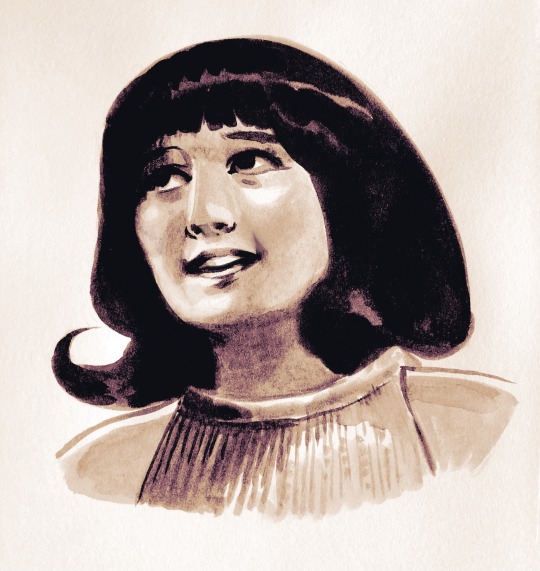
🇲🇨 Minouche Barelli - Boum-Badaboum
#Monaco#esc#eurovision#eurovision art#esc art#art#digital art#portrait#euroviisut#eurovisione#eurovisión#1967#Monaco 1967#esc 1967#eurovision 1967#Monaco esc#Monaco esc 1967#Monaco eurovision#Monaco eurovision 1967#Boum-Badaboum#Minouche Barelli#topic of this song feels sadly relevant again#ink#bistre#eurovisie#eurovisie songfestival#евровидение#one of my favs of 1967
9 notes
·
View notes
Text
Three Minutes to Eternity: My ESC 250 (#58-57)
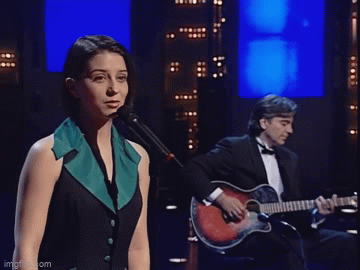
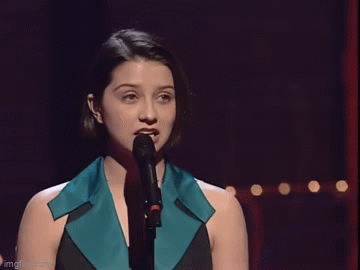
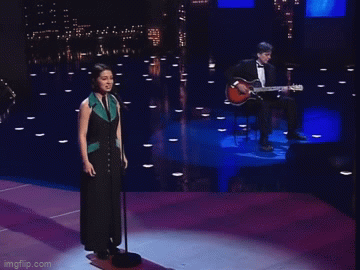
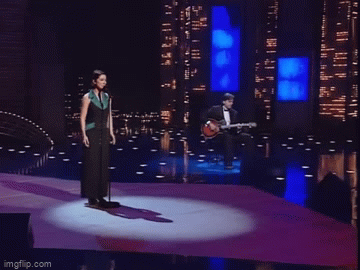
#58: Friderika Bayer -- Kinek mondjam el vétkeimet? (Hungary 1994)
“Semmi sincs, csak fénytelen éj
Csak szótlan bánat, hiú remény
Nincsen hûség, nincs szerelem
Nincs simitó kéz nekem”
“There is nothing, just the lightless night
Just speechless sorrow, just illusive hope
There is no loyalty, no love
There's no caressing hand for me”
Seven countries debuted in the 1994 contest (including Russia--see #149 about that), and I thought this was the best of all of them. While To nie ja showcased Edyta's vocals and put her on the road to superstardom in Poland, Kinek mondjam el vetkimet does something more than that for me, as it creates a compelling soundscape and actually makes me feel something.
The song puts Friderika in a vulnerable situation, where she seeks somebody to talk to. It gets occasionally interpreted as a teenage pregnancy, because of the line "A meg sem született gyermekemnek"/"In spite of nobody dying and no children being born" and the English version suggesting that the narrator aborted the child. I didn't get that sense while I was listening to it, but I could relate to it a lot, because of the need to relieve oneself of the burdens that haunt them in life. I felt lonely at times, and need someone to talk to about life. (also, the title translates to "To whom I may confess my sins?", and the slight religious hints intrigues me again, haha)
The minimalistic instrumentation highlights that fragility; there's the guitarist playing that melody, the occasional tambourine, and the orchestra in the background. They create a little world for three minutes, filled with longing and the need to cry. It's almost like a prayer for understanding, because of the simplicity and sincerity of it. And it is just pure gold, deservingly getting Hungary’s best entry to date (for now, I hope).
P.S. A shout-out for @eurosong and @white-eyed-girl; both really love this song, but for the former, it's their favorite Eurovision song ever!
Personal ranking: 1st/25
Actual ranking: 4th/25 in Dublin
Final Impressions on:
--1994: It's known for having seven new countries come over (four that missed out on Kvalificacija za Millstreet in Hungary, Slovakia, Romania, and Estonia, along with Poland, Russia, and Lithuania), along with being an especially ballad-heavy year. Several times in the running order, it seemed like all the songs blurred together, though I do think that the song quality was high enough to keep it from being bad. Most notably, Riverdance blew everyone out of the water with its use of Irish dance; it became more popular than the whole starting lineup. Basically, that was epic, along with the crowd in Point Theatre cheering for Ireland when they received multiple 12 points to get their third straight title.
--Hungary: Definitely one of the more unique countries in the contest, in terms of what they send. Looking back, they were more up-and-down in terms of quality, but they never leaned towards something more "basic". When they did deliver, they really did in spades; that helped with maintaining an eight-year qualification streak between 2011 and 2018. Sadly, they withdrew because of their increasingly authoritarian government, which is made even worse because they looked like they were going to win. Hopefully, they come back soon!
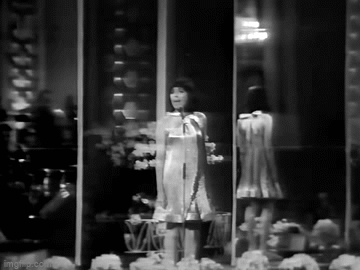
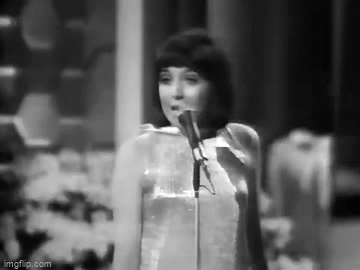
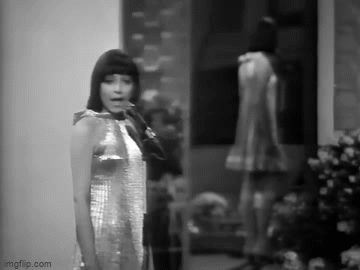
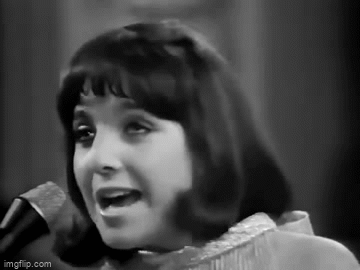
#57: Minouche Barelli -- Boum Badaboum (Monaco 1967)
“Avant de faire tout sauter, boum boum
Laissez-moi le temps d’aimer, badaboum
Laissez-moi encore la vie, boum boum
Au moins mille et une nuits, badaboum”
“Before blowing everything up, boom boom
Leave me the time to love, badaboom
Still leave me my life, boom boom
At least a thousand and one nights, badaboom”
Another Serge Gainsbourg-penned song, I find it quite interesting. Whereas Poupée de cire, poupée de son (#179) and White and Black Blues (#74) deal with similar thoughtful issues with well-written lyrics, Boum Badaboum is a lot more straightforward.
Despite the silly title, it has a serious message about trying to enjoy what life is about before she gets killed in a nuclear explosion. The United States and the Soviet Union were just hours away from catalyzing a nuclear war five years ago, and yet amongst the negotiations and proxy wars of the Cold War, tension remains. These pleas are almost drowned out amongst the cacophony of the "bada-boums", which can be an acquired taste to some people.
Mincouche's voice is a bit shouty, which when combined with the instrumentation, makes me waver on whether or not I truly like the song. However, it does gets the message across the poppy soundscape, and she performs it with a bit of mischief amongst the despair. The orchestration for this makes it so cool and groovy, you wouldn't know that she's shouting for a little bit of peace!
Personal ranking: 1st/17
Actual ranking: 5th/17 in Vienna
#eurovision song contest#eurovision#esc250#esc 250#esc top 250#esc hungary#friderika#friderika bayer#esc 1994#esc monaco#minouche barelli#esc 1967#how to deal with existential crises in two songs#another quite versus loud song#but they both have meaning#vintage eurovision#three minutes to eternity
2 notes
·
View notes
Video
youtube
On the one hand, this song is sung in a way I cannot stand. On the other hand, it’s about being blown up in a bombing, so it’s still fits?
#esc#eurovision song contest#year: 1967#draw: 14#performer: Minouche Barelli#place: 5#country: monaco#language: french#points: 10#voting: 10 points to give#composer: Serge Gainsbourg#lyricist: Serge Gainsbourg
1 note
·
View note
Text
Eurovision 1967 my top 17
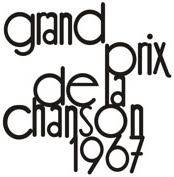
Hello again, and welcome to another episode of this long series about the ESC. Now it’s time to review what happened on April 8th 1967 in Vienna, Austria after Udo Jürgens’ victory in Luxembourg the last year. 17 countries took part and Denmark said goodbye for 11 years. Again the voting system was changed to the one that was applied on the first years of the contest. The contest was won by the United Kingdom with the song Puppet on a string, making this their first victory ever. And now, with the songs.
1st Place: UNITED KINGDOM/Sandie Shaw-Puppet on a string (Real Placing: 1st-47 points)
This song has and will have an special place on my heart because it was one of the first ESC songs I heard, the song is catchy, the performance is so amazing and she is a nice singer, another song that the contest needed to get into the 60′s. Worthy winner indeed and thumbs up for Sandie.
2nd Place: SPAIN/Raphael-Hablemos del amor (Real Placing: 6th-9 points)
Again this man manages to win my heart with his amazing voice and performance, another good entry from him and the music in the chorus is the best part, one of Spain best early entries and the lyrics are very good actually. Oh Raphael, I love you so much.
3rd Place: LUXEMBOURG/Vicky Leandros-L’amour est bleu (Real Placing: 4th-17 points)
Oh what a song!!!! One of my absolute favorites ever, and Vicky is such a wonderful singer, this song is catchy, the music is marvelous and Vicky returned some years later with another result that I’ll discuss at the time of that review. A classic song and one of the pearls of the contest.
4th Place: GERMANY/Inge Brück-Anouschka (Real Placing: =8th-7 points)
And this is one of Germany’s best entries of the 60′s, sounds modern and she is a very good singer, the la la la is catchy and the chorus is amazing, the music makes this entry a good one, and this one makes me happy.
5th Place: FRANCE/Noëlle Cordier-Il doit faire beau là-bas (Real Placing: 3rd-20 points)
This sounds so 60′s for a reason I can’t describe, the verses are very groovy and the chorus is amazing, the music is very good and she is an amazing singer. This is what France needed after their fiasco last year.
6th Place: BELGIUM/Louis Neefs-Ik heb zorgen (Real Placing: 7th-8 points)
I like a lot this one, so funny and the troll finish is amazing, his voice is good as well and yeah, overall a good song. Such an enjoyable entry.
7th Place: PORTUGAL/Eduardo Nascimento-O vento mudou (Real Placing: =12th-3 points)
The music on this one is amazing, and his voice is very good, I love it. The chorus is amazing and the beginning is excellent. Such a nice entry and again, an entry that IMO deserved more than some songs that finished higher on the night.
8th Place: ITALY/Claudio Villa-Non andare più lontano (Real Placing: 11th-4 points)
This one is so dramatic in a good way, Claudio’s voice is superb and the orchestra makes this wonderful, an absolute delight to hear this one. Both of his entries are amazing, but this one is superior and excellent.
9th Place: NORWAY/Kirsti Sparboe-Dukkemann (Real Placing: =14th-2 points)
Again an underrated song for this lady, her voice is so cute and amazing, an absolute delight, and the song is good and the orchestra sounds okay, nice entry overall.
10th Place: THE NETHERLANDS/Thérèse Steinmetz-Ring-dinge-ding (Real Placing: =14th-2 points)
This one is repetitive, but makes me feel good at some point, sounds like something from a Christmas movie soundtrack, maybe if the song was a bit shorter would’ve been better. Such an energetic entry.
11th Place: MONACO/Minouche Barelli-Boum-badaboum (Real Placing: 5th-10 points)
This one is interesting... it really sounds like an explosion, quite repetitive and maybe too noisy for my taste.
12th Place: IRELAND/Sean Dunphy-If I could choose (Real Placing: 2nd-22 points)
Also I like this, his voice is something amazing and the music is good, overall a nice entry but not a runner up.
13th Place: FINLAND/Fredi-Varjoon-suojaan (Real Placing: =12th-3 points)
I like this one and his voice is amazing, and the music is very good, but somehow turns repetitive with the chorus, anyway, a nice entry.
14th Place: SWEDEN/Östen Warnerbring-Som en dröm (Real Placing: =8th-7 points)
A dark entry, and his voice is good, but sadly bores me a little, the chorus is the best part.
15th Place: SWITZERLAND/Géraldine-Quel cœur vas-tu briser? (Real Placing: 17th-0 points/last)
This one sounds promising and good, but then she sings and everything breaks inside of me, I love the music and with another singer, this would’ve been on my top 5. That note at the end is scary.
16th Place: YUGOSLAVIA/Lado Leskovar-Vse roze sveta (Real Placing: =8th-7 points)
This one is sweet on the chorus, but as with Austria, I can’t remember this at all. Nice voice though.
17th Place: AUSTRIA/Peter Horton-Warum es hunderttausend Sterne gibt (Real Placing: =14th-2 points)
I always forget about this one, boring, uninteresting, sorry but not for me.
1 note
·
View note
Photo

Jim Clark - box lotus - Monza 1967
Nella carriera dello scozzese Jim Clark brilla una perla più di ogni altra. Per Gilles Villeneuve è stato il Gran Premio di Digione del 1979, per Ayrton Senna quello di Monaco del 1984. Per Jim Clark è senza dubbio Monza 1967. La caratteristica comune a queste tre autentiche leggende del MotorSport, è quella di non aver vinto la gara che più di ogni altra li ha visti protagonisti. Il canadese della Ferrari si arrese a Jabouille e alla sua Renault Turbo e Ayrton ad Alain Prost, con la partecipazione speciale della direzione di gara monegasca. Jim Clark a Monza, nel 1967, arrivò ad un tanto così dal compiere la più grandiosa rimonta della storia delle corse. Giunse terzo, certo. Non alzò la coppa del vincitore, ovviamente. Ma in quel giro d’onore, il pubblico di Monza gli omaggiò un tributo di applausi degno della più grande vittoria che un pilota possa ottenere in pista
Nel mezzo degli anni 60 in F1 c’è una vettura dipinta di verde molto british e disegnata da quel genio di Colin Chapman che ha l’abitudine di lanciare il cappello in aria dopo ogni vittoria. Per sua fortuna, è costretto a raccogliere tantissime volte quel cappello da terra, mentre Enzo Ferrari osserva da bordo pista, con lo sguardo infuriato nascosto dagli inseparabili occhiali scuri. Le sue vetture, le fantastiche Lotus, sono dannatamente belle. Leggere, filanti. Ogni elemento è alleggerito al massimo, limato, tornito, rimpicciolito. Tanti accusano Colin di esagerare. Lo accusano di mettere in pista vetture pericolose. Come se poi ci volesse Chapman a rendere pericolosa una lamina di acciaio sottile, spinta da 400 cv su quattro gomme che oggi non monterebbero neanche ad un passeggino.
Il legame tra Chapman e Jim Clark è fortissimo. Lo scozzese forma assieme a Graham Hill una coppia formidabile in pista. Le auto si rompono spesso, perché quando si gioca con gli spessori è normale che ci sia una certa tendenza al cedimento strutturale. Ma sono velocissime e se fai il pilota di F1 negli anni 60, ti basta questo. Quando il circus della F1 arriva a Monza nel settembre del 1967, Jim Clark ha già vinto due titoli di campione del mondo nel 63 e nel 65. La stagione non sta andando benissimo e Jim Clark ha raccolto solo due vittorie ed un sesto posto nelle gare in cui è arrivato al traguardo. In tutte le altre nisba. La dura legge di Chapman colpisce duro come nel 66, quando restò a piedi ben sei volte su nove con il n°1 sul musetto.
Durante le qualifiche i piloti riescono a mettere assieme pochi giri puliti, prima che un temporale colpisca il tracciato brianzolo. La configurazione di Monza è quella originale. Chicane neanche a parlarne. Le curve di Lesmo sono da infarto e la Parabolica è degna dei peggiori banking americani. Aggiungete aerodinamica zero, telai quanto meno discutibili e gomme che non rinfrescano neanche l’alito ed avrete il quadro piuttosto concreto per comprendere al massimo il rispetto dovuto al tracciato dai piloti dell’epoca. L’appellativo “Tempio della velocità” non cadde a caso su quel magnifico assieme di rettilinei e finte curve. Correre con il bagnato a Monza, equivale a tentare la roulette russa con cinque colpi su sei nel tamburo. Dopo aver già sparato il primo colpo.
Sul bagnato non gira praticamente nessuno, tranne Surtees che porta in gara la nuova Honda RA300, la vettura voluta da Mr. Soichiro per dimostrare che in Giappone fanno sul serio quando si parla di racing. Nei pochi giri fatti sull’asfalto asciutto, Jim Clark ha demolito il record della pista che apparteneva alla Ferrari. Il commendatore Ferrari, non la prende benissimo. La Pole resta allo scozzese, solo che lo start della gara si può condensare in tre parole pregne di significato: un autentico casino!
La Direzione Gara va in bambola totale e il via viene dato 30 secondi prima del dovuto. Alcune vetture si lanciano prima della bandiera e anche lo stesso Jim Clark viene tamponato da Amon partito meglio alle sue spalle. Il serpentone di vettura inizia a lasciare il rettilineo del traguardo, tra le urla lancinanti di motori a 6,8,12 e 16 cilindri. Alla faccia della F1 di oggi, in cui neanche Mozart bendato riuscirebbe a distinguere una Ferrari da una Mercedes.
In testa scatta Sir Jack Brabham, che ha già qualche annetto sulle spalle ma resta un mastino incredibile quando si va in gara. Alle sue spalle Dan Gurney sulla sua Eagle e la coppia Lotus di Hill e Clark, che riesce ad arginare la pessima partenza e spinge forte. Che Jim e la sua Lotus 49 siano in giornata lo si capisce subito, perché dopo tre giri lo scozzese ha già sverniciato il compagno di team e Brabham, che nel frattempo ha ceduto il passo allo yankee Gurney.
Anche per l’americano la sagoma verde della Lotus di Clark prende forma molto velocemente negli specchietti e all’ingresso della Parabolica lo passa in staccata, prendendosi la prima posizione di forza. Da quel momento in poi, Jim Clark detta legge imponendo il proprio ritmo che risulta inavvicinabile per tutti i rivali. Messo qualche secondo di vantaggio tra sé e gli avversari, Clark si limita a gestire il margine conquistato. Ma la legge di Chapman lo attende e inizia a perdere colpi in pista. All’inizio non sembra capire cosa lo stia rallentando, tanto da non accennare a chiudere il gas in rettilineo nonostante la Lotus 49 proceda sinuosa come un serpente posseduto. Iniziano a passarlo tutti e quel gran signore di Jack Brabham lo affianca per segnalargli che ha una gomma posteriore che si sta afflosciando. Per poco non esce di pista nel tentativo di avvertire il pilota della Lotus. Ve l’immaginate oggi Hamilton che affianca Alonso per avvisarlo che sta perdendo l’ala posteriore? Altri tempi, altri piloti e soprattutto altri uomini.
Jim Clark finalmente molla la presa e rientra ai box, mentre in testa alla gara Hill, Hulme e Brabham prendono il largo. Il pit stop non è esattamente da record e Jim riprende la pista con più di un giro di svantaggio dagli illustri colleghi in testa alla gara. Tantissimi altri piloti in una situazione analoga avrebbero probabilmente deposto le armi, cercando semplicemente di portare la vettura al traguardo. Non è il caso di considerare Jim Clark tra questi, visto che al rientro in pista lo scozzese prende un bel respiro e dopo si cala nella più clamorosa rincorsa della storia delle corse. Quando la sua Lotus 49 rientra in gara si trova in ultima posizione e Jim impiega solo otto giri per riportarla in undicesima posizione, a ridosso della top ten e soprattutto a portata di tiro per sdoppiarsi dai primi della gara.
Passa i battistrada con la semplicità con cui uno squalo bianco azzanna una biondina in un film horror. Spielberg non ha ancora girato The Jaws, ma il motivetto del film è incredibilmente appropriato per descrivere la circostanza. Al giro n°33 Jim Clark raggiunge il compagno di team Baghetti che si trova in settima piazza, mentre davanti si ferma Hulme. La classifica vede Brabham condurre su Surtees e Chris Amon con la Ferrari. Alle loro spalle Hill, Clark e Baghetti che formano un trenino tutto Lotus alla caccia del podio.
Il primo del terzetto di Chapman a mollare è proprio Baghetti, che vede il proprio Cosworth rendere l’anima al Dio dei motori, facendo venire più di un mal di testa ai tecnici Lotus. Monza è un tracciato durissimo per i motori e Jim Clark sta spingendo come un matto da inizio gara. Non sbaglia una cambiata e accarezza le traiettorie senza mai guidare di forza. Ma le buone maniere al volante e il talento immenso dello scozzese non sono una garanzia per l’affidabilità della macchina.
In effetti anche un’altra Lotus saluta la compagnia, ma è quella di Hill. Il suo V8 si ammutolisce proprio quando iniziano i problemi anche per la Ferrari di Amon. A questo punto Clark si trova terzo, e sta per coronare la rimonta ricongiungendosi con Brabham e Surtees, che sta facendo un’impresa sulla Honda assemblata pochi giorni prima della gara. Mentre la folla è letteralmente in delirio, lo scozzese della Lotus passa entrambi gli avversari nello stesso giro, uno alla Parabolica e l’altro alla Curva Grande, la prima dopo il rettilineo dei box.
A questo punto sembra davvero fatta, visto il ritmo insostenibile che Clark è riuscito a tenere per tutta la gara. Ma la tanto temuta legge di Chapman bussa alla porta proprio quando inizia l’ultimo giro. La Lotus inizia a perdere terreno, singhiozzando in rettilineo. Sembra che il carburante sia agli sgoccioli e a Jim Clark non resta che pelare il gas, sperando che il Cosworth vada ad aria per mezzo giro. L’attenzione si sposta per qualche secondo su Surtees e Brabham, con il pilota Honda regala una fantastica gioia a Mr Soichiro Honda. Ma il pubblico è tutto per Clark e per la sua singhiozzante Lotus che lo porta al traguardo prima di piantarlo in asso.
La pagina di storia è scritta, anche se la rimonta non è stata coronata da una vittoria. Cambia poco, perché tutti ricorderanno Monza 1967 per il terzo posto di Jim Clark e in pochi ricorderanno che Surtees ha vinto la gara con la Honda di un matto giapponese che venne in Italia ad insegnare al grande Maestro come si costruisce una F1. Per la cronaca, la benzina c’era ancora nel serbatoio di Clark, ma il Cosworth iniziò ad avere problemi di pescaggio. Se ne accorsero i tecnici subito dopo la gara. La legge di Chapman aveva colpito ancora, ma questo non gli impedì di lanciare il cappellino in aria e farlo ricadere sull’asfalto sporco. Era “solo” un terzo posto, ma ne valeva incredibilmente la pena.
0 notes
Photo

EV Profile - 🇲🇨 Monaco has participated in the Eurovision Song Contest 24 times since its debut in 1959. The country's only win in the contest came in 1971 when Séverine performed "Un banc, un arbre, une rue". In 1972, Monaco was expected to host the contest, but declined. Monaco is still today, the only microstate which has won the Eurovision Song Contest. Monaco finished last at its first contest in 1959 before achieving three top three results in the 1960s. Two of these were achieved by François Deguelt, who finished third in 1960 and second in 1962. Romuald also finished third in 1964. Severine's victory in 1971 was the first of five top four results in eight years. The others were achieved by Romauld (who returned to place fourth in 1974), Mary Christy who was third in 1976, Michèle Torr, fourth in 1977and Caline & Olivier Toussaint who were fourth in 1978. After participating in 1979, Monaco was absent from the contest for 25 years. Monaco returned to the contest for three years from 2004 to 2006 but failed to qualify from the semi-finals. The Monegasque broadcaster then withdrew from the contest saying that regional voting patterns in the contest have effectively given Monaco no chance of qualifying for the final. Due to the country's very small size, all Monaco's entrants came from outside the principality. The large majority of them were French, with also one Yugoslavian, Tereza Kesovija, and one Italian, Mary Christy. Several singers selected to represent Monaco are key figures of the French scene, such as Françoise Hardy and Michèle Torr. Luxembourg, another small country, also sent a great number of French artists to the contest. At the 1967 contest, the Monegasque entry, "Boum Badaboum", sung by Minouche Barelli, was written by Serge Gainsbourg. He had already composed the winning entry in 1965, "Poupée de cire, poupée de son", sung by France Gall for Luxembourg. Jean Jacques, who represented Monaco in 1969, was the first child to take part in Eurovision. He was 12. #monaco #eurovision #EuroRangers #EuroVisionRangers #esc (at Monaco)
0 notes
Video
youtube
Okay, so this song is 2/3 not for me (her singing just doesn’t do it for me), but that’s on me. You’ve gotta have pipes of steel to sing like that — my throat hurts just thinking of it.
#esc#eurovision song contest#year: 1967#draw: 14#performer: Minouche Barelli#place: 5#country: monaco#language: french#points: 10#voting: 10 points to give
2 notes
·
View notes
Text
Three Minutes to Eternity: My ESC 250 (#180-171)
#180: Fernando Tordo -- Tourada (Portugal 1973)
“Entram guizos, chocas e capotes,
E mantilhas pretas,
Entram espadas, chifres e derrotes,
E alguns poetas,
Entram bravos, cravos e dichotes,
Porque tudo mais são tretas,”
“Bells, cowbells and capes are coming in,
And black mantillas
Swords, big horns and defeats are coming in
And some poets
Brave people, carnations and swear words are coming in
Because it's a wheeze at most”
Despite the title ("tourada" translates to bullfight in Portuguese), it's actually a portrait of a revolution in the making. The lyrics were so clever that the censors at the RTP didn’t notice these lyrics were reflecting the current regime.
That’s enough for a 250 appearance for me, but there’s more that makes the song so memorable.
The build with the brass and percussion sets the stage for something important to happen. Sometimes, I do forget I like this song, but listening to it like right now is an experience, like one entering the battlefield.
The last line, "And the intelligent man says that songs are over..." still amuses me, though it's quite cynical in that the intellectuals would eventually not believe in the movement.
Personal ranking: 5th/17
Actual ranking: 10th/17 in Luxembourg
#179: France Gall -- Poupée de cire, poupée de son (Luxembourg 1965)
“Suis-je meilleure, suis-je pire qu’une poupée de salon?
Je vois la vie en rose bonbon
Poupée de cire, poupée de son”
“Am I better, am I worse than a fashion doll?
I see life through bright rosy-tinted glasses
Wax doll, sawdust doll”
One of the game-changing songs of Eurovision, in that the general mood shifts from slow-tempo songs to a little bit of pop. The first ten contests had their share of good songs, but seem to blur into each other at points. Afterwards, the song quality rose, and they were better suited to the times.
Beyond the happy orchestral sound is something quite sad—a pretty girl who sings songs without experiencing what they mean. Gainsbourg was quite the songwriter, but it led to a falling out between him and France later on, because of the double meanings of the songs he wrote for her.
The drama related to France Gall and the contest didn't stop there. Kathy Kirby, the runner-up that year, slapped France when she won. Then her boyfriend broke up with her shortly after, and wrote a song that would be the basis of "My Way".
Quite interesting I must say, though I don’t come back to this song often.
Personal and actual ranking: 1st/18 in Naples
#178: Ajda Pekkan -- Petr'oil (Turkey 1980)
"Öyle gururlusun gidemem yanına
Girmişsin kim bilir kaç aşığın kanına
Dolardan, marktan başka laf çıkmaz dilinden
Neler, neler çekiyorum senin elinden"
"You are so proud, I can’t come close to you
I wonder who else suffers from your love
You speak of nothing but dollars and marks
I am so suffering because of you"
My 1980 winner is not only quite groovy and seductive, but also clever.
The 1970s had two major oil crises--one in 1973, and another in 1979. The first one was when OPEC withheld their oil from countries who supported Israel during the Yom Kippur, and the second one when oil production stopped during the Iranian Revolution, resulting in higher prices per barrel. Both resulted in low supply and increased gas prices in the United States; those who grew up during the era were less likely to drive as a result.
Petr'oil takes this issue and anthromorphizes it, as Ajda sings about the troubles of relying oil as a resource and as a partner. The belly-dance music also emphasizes the tension. combined with the percussion and strings on this piece.
While Ajda has since distanced herself from the song, I embrace it in all its charms. Plus it was heavily underrated in its year.
Personal ranking: 1st/19
Actual ranking: 15th/19 in Den Haag
Final Impressions on 1980: This year stands out a bit, for it had a number of songs dealing with a huge number of topics (including Belgium's "Euro-Vision", which made the contest go meta, haha). Alongside it, the production was a bit bare-bones, because of the Netherlands hosting it four years earlier, but it featured quirks such as a representative announcing their country's song, Morocco competing for the only time, and a steel band for the interval!
#177: The Allisons -- Are you sure? (United Kingdom 1961)
“Are you sure you won’t be sorry?
Comes tomorrow, you won’t want me
Back again to hold you tightly?”
The lyrics are quite smug, in that the Allisons warn the girl who plans to break up with them she might be sorry and alone. Not unlike with "If I Were Sorry", though there's a bit more charm and teasing towards their soon-to-be ex-, whereas the latter feels a bit more arrogant.
That said, it’s upbeat and almost lines up to the musical scene at the time (comparisons to Buddy Holly are not uncommon), and the musical run time just goes by so quickly (in comparison to other entries of the same era)! It's just a breeze.
Personal ranking: 1st/16
Actual ranking: 2nd/16 in Cannes
#176: Vicky Leandros: L'amour est bleu (Luxembourg 1967)
“Bleu, bleu, l'amour est bleu,
Berce mon cœur, mon cœur amoureux,
Bleu, bleu, l'amour est bleu,
Bleu comme le ciel qui joue dans tes yeux.”
“Blue, blue, love is blue,
Cradle my heart, my loving heart
Blue, blue, love is blue
Blue like the sky which play in your eyes."”
I think I first heard this in the intro to Eurovision 2006's semi-final. While the harp motif stood out, I didn't know where it came from. It was until when I watched the contest this song was in, which is strange because it was notable for having a Paul Mauriat cover which became a hit.
One of many classics which featured in 1960s contests, I like the innocence shown through the lyrics, which uses color and imagery to tell about the different cycles of love. The orchestration along the bridge was especially spectacular, as it provided a cinematic feel towards . Vicky’s accent sometimes gets in the way, but she sings this well and should’ve gotten a podium position.
Personal ranking: 2nd/17
Actual ranking: 4th/17 in Vienna
#175: Kaija -- Ullu joy Hullu yö (Finland 1991)
"En edes halunnut sua omistaa
En edes leikisti rakastaa
Kaksi kulkijaa yhteen osuttiin
Yksi yhteinen hetki jaettiin"
"I didn’t even want to own you
I didn’t even want to love you
We two travellers came across each other
Shared one common moment together"
While I was watching Eurovision 1991, I liked the mysterious verses of Hullu yo, but I found the chorus a bit off, because it was punchier and more energetic. It also had that "minor-verse/major chorus" thing going on, which also made me uneasy with the song. With a few listens, I grew to like a bit more, because of its unique sound. It definitely sounds better with the studio cut versus the live, which shows off the failures of RAI's orchestra.
Another thing about the song, beyond its lyrics about a one-night-stand turned into longing feelings, was the choice choreography. Playing out the turmoiled relationship, it's funny to see how provocative it is, and that's after Toto's hilarious pronunciation of the song.
Elements of the live performance aside, it's still a jam which deserved better. Maybe it would've done so in the televote era.
Personal ranking: 7th/22
Actual ranking: 20th/22 in Rome
#174: Francoise Hardy -- L'amour s'en va (Monaco 1963)
“Si ce n’est toi
Ce sera moi qui m’en irai
L’amour s’en va
Et nous n’y pourrons rien changer"
"If it isn’t you
It will be me who will go away
Love goes away
And we can’t change anything about that"
I was happily surprised hearing this for the first time. It was very melancholic, with an interesting structure between the verses and the chorus. The percussion also helps with the latter, and adds a bit of character to the song.
The fact Francoise wrote this classic gem also warmed me up more to the song, especially because she was from the ye-ye generation of singers (which are known for being young and upbeat). Yet she stands and sings her own composition in a serious, almost bored tone, without taking the substance of the song away
(That being said, I really need to listen to more of her songs; I've found a couple a month ago, though there's obviously more...)
Personal ranking: 2nd/16
Actual ranking: 5th/16 in London
#173: ABBA -- Waterloo (Sweden 1974)
“The history book on the shelf is always repeating itself...”
You don’t need me to tell about this, do you? It’s fun and timeless pop, with some cool costumes to boot.
For more interesting stuff for both, the song Waterloo was an actual risk for the contest--they actually had another song for consideration, the folk-influenced Hasta Manana, but turned to this instead. And it worked, of course!
For the clothes, ABBA apparently chose these glam-rock inspired costumes because in Sweden, one wouldn't have to pay additional fees if the costumes won't be used for normal wear. Both Anni-frid and Agnetha look great, nevertheless.
And as of the moment, my favorite ABBA song is "Knowing Me, Knowing You". Despite the poppy tone, it has a moody vibe throughout, and one knows the relationship is going to end on a bad note.
Personal ranking: 2nd/17
Actual ranking: 1st/17 in Brighton
#172: Gigliola Cinquetti -- Si (Italy 1974)
“Sì, dolcemente dissi sì,
Per provare un'emozione,
Che non ho avuto mai,”
“Yes, I softly said yes,
To feel an emotion
That I've never had before”
My friend told me an interesting story about the lyrics—whereas the song Gigliola won with tells of a girl waiting to grow older to find true love, Si talks of the girl growing up and taking the plunge. So she interprets Si as a sequel of sorts.
So why does this beat Waterloo, in my opinion?
I like how the song starts—quietly, but with an interesting guitar part. The instrumentation builds well towards the "Si...", at which it gently but certainly blooms towards Gigliola's certainty on going with the man she loves.
The interesting part of it was how the song was censored in Italy because it was seen as "subliminal messaging" for a campaign on a divorce referendum that May. "Si" sounds like an endorsement for the "no" campaign, as it embraces being in love, even if it requires the death of another relationship.
Personal ranking: 1st/17
Actual ranking: 2nd/17 in Brighton
Final Impressions on 1974: Definitely one of the most memorable years in the contest, if only for who won. The rest was a tale of two halves, with the first half being particularly good, and the other half bad (except for Si, as you can tell). And there were Wombles in the interval act, hehe.
#171: Eugent Bushpepa -- Mall (Albania 2018)
“Lot i patharë ndriçojë këtë natë
Sonte kumbo prej shpirtit pa fjalë
Vetëm një çast dhimbja të më ndalë”
“Lingering tear, light up this night
Find your way out, to soothe my soul
Just for one day make this pain subside”
Aren’t the lyrics to this so beautiful? They convey Eugent’s desire to be with his loved one so well, in both its pain and beauty.
The music really helps too--while the pre-vamped version was a whole minute longer, it also has a rockier edge to it. The revamped version cuts it down and cleans up the production, but it's still maintains the overall feel throughout.
Eugent is also a talented talented singer, which proved initial odds wrong and got Albania one of its best results! The bridge between the second verse and chorus has a great chord progression (which was given more space in the revamp), and he deserved qualification for that alone. And those high notes.
(Also, he's probably the best dressed guy of his year...good job Eugent, good job.)
Personal ranking: 7th/43
Actual ranking: 11th/26 GF in Lisbon
#eurovision song contest#esc 250#esc top 250#esc portugal#esc luxembourg#esc turkey#esc united kingdom#esc finland#esc monaco#esc sweden#esc italy#esc albania#vintage eurovision#three minutes to eternity
1 note
·
View note